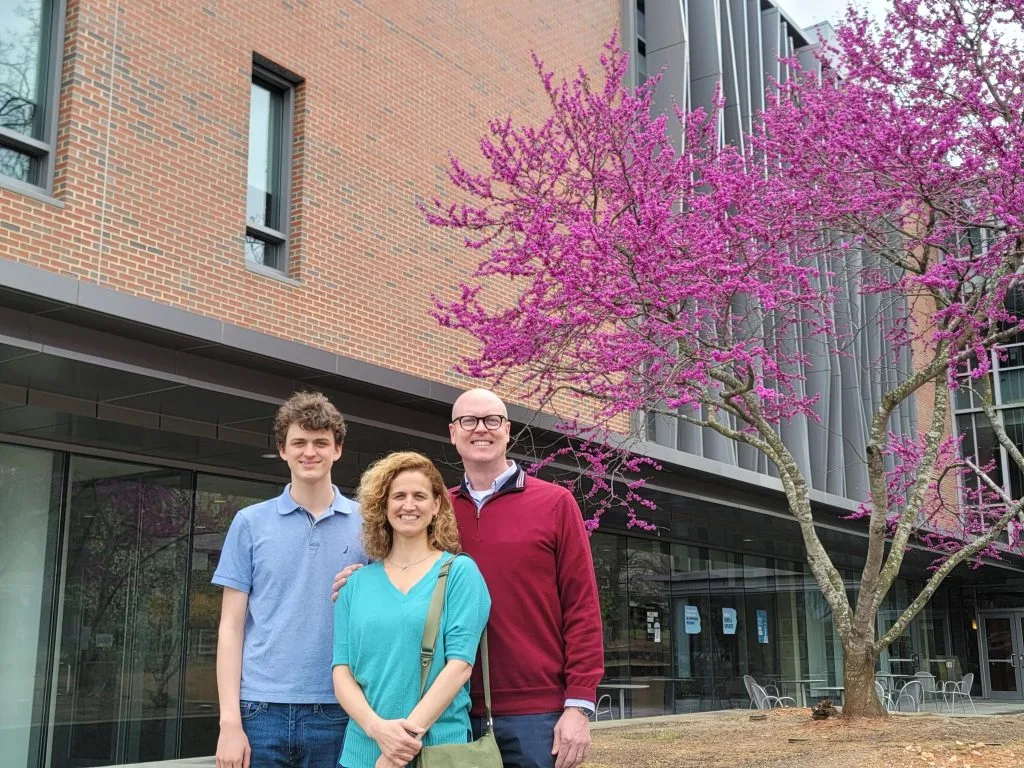Interview with Craig Silliman: President of Verizon Global Services, Global Studies ‘89 alumnus

As President of Verizon Global Services, Craig Silliman leads a team of 47,000 Verizon and third party personnel in more than a dozen countries running the company’s central support services operations.
Craig is responsible for most shared services teams within Verizon, including information technology, data analytics, real estate, sourcing, supply chain, fleet, finance operations, HR operations, reporting and insights, learning and development, public policy and information security.
Under Craig’s leadership, the Verizon Global Services team manages Verizon’s partner ecosystem, which includes tens of thousands of vendors that provide services to the company.
Craig has previously held various other senior executive roles at Verizon. He holds an undergraduate degree in international and area studies from the University of North Carolina and a law degree from the University of Virginia.
Craig and his wife currently live near Verizon’s headquarters in New Jersey and have three sons. In his spare time, Craig enjoys cycling, hiking and other outdoor sports, traveling, and reading.
What are some of your fondest memories during your time in our program or as a UNC student generally?
“The year I spent studying abroad in Seville, Spain was transformative for me. I still remember feeling intensely alive as my senses were bombarded with new sights, sounds and smells. Being outside my comfort zone was both unsettling and exhilarating and helped me to grow as a person. Three decades later, I have more memories of that year in Seville than of my other three years of college combined.
Back in Chapel Hill, I have fond memories of taking US-Latin American relations classes with Lars Schoultz. For me, Dr Schoultz was everything a professor should be: he inspired me to expand my intellectual horizons; his teaching style was approachable yet challenging; and he seemed to care about his students and to understand how his presence in the classroom influenced us. I wanted to do well in his class not just for the grade per se, but because I wanted to live up to his expectations.”
What made a globally oriented education attractive to you?
“When I was a child my family moved frequently, so I often found myself needing to integrate into new groups as the “new kid”. I also am quite introverted. I think the combination of those two things gave me an interest in observing others in order to learn how to navigate what were, for me, awkward social environments.
I extrapolated that interest in observing and understanding others into a broader goal of understanding the world. I felt that, in order to live in a global society, I needed to understand how we are shaped by our different life experiences, cultural contexts, language, religion and more.
At the risk of sounding naive, I have always felt that we mitigate much violent conflict when we know one another. There are many studies of genocide that detail how dehumanizing the target group was the first step in leaders convincing their followers to commit atrocities. Conversely, the more we get to know and understand others, the more we see them as human beings just like us.
In sum, I knew that I lived in a globally connected world in which the vast majority of people were different than me, so in order to navigate that world I wanted learn as much about the history and experiences of others as possible.”
How has your globally oriented education informed your personal and professional pathways since graduation?
“Having studied other countries’ histories and experienced other cultures has deeply shaped my personal outlook. No one person can understand all cultures or languages, but once you experience even one other culture and operate in one other language, you realize that not everyone sees the world the same way you do. That one simple insight changed my outlook on almost everything in my life since.
In addition, once I experienced the complex emotions of being in an unfamiliar environment, I wanted to keep creating that sensation. Throughout my post-college years I have been drawn to jobs with global elements to them, and I have lived and worked in other countries and traveled extensively.
I have sought out global jobs because, for me, any assignment is more interesting if it has a cross-border element. Even decades later, having visited dozens of different countries, I still feel a rush of adrenaline when I step off a plane in another country.”
What is one word of advice you would give to current students majoring in Global Studies?
“Be aware of the larger trends – technological, demographic, economic – in which you will be living and working for the decades to come. Your career will be like paddling a kayak on a river: you can steer yourself to some extent but you will be doing so within the larger context of the direction that the water is flowing. You can paddle against the river’s current a little, but the way you will go furthest and fastest is to pick the right current to carry you. Not all future trends are predictable, but many are.
The advantage of someone my age is that I have decades of experience in the way the world has been and is today. The advantage of someone your age is that you have decades ahead of you and can plan for what the world will be. The job you excel in may not even exist yet. So study the upstream river to understand how it developed to this point, but then plan your career based on where the downstream current is headed.”
